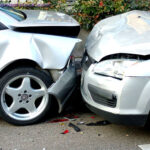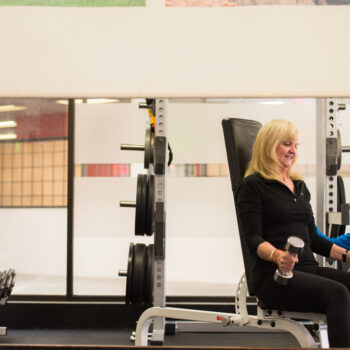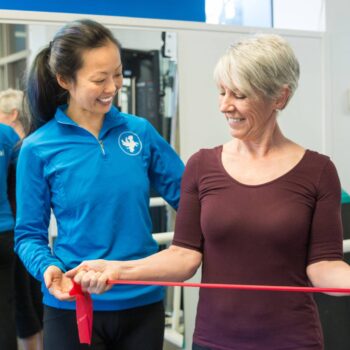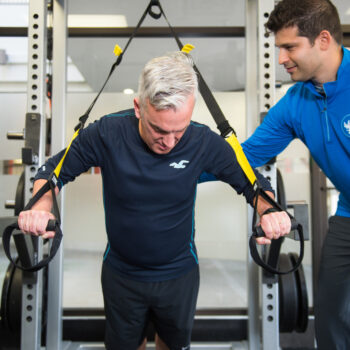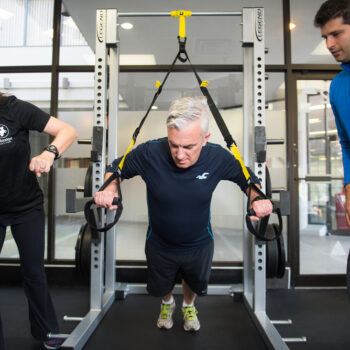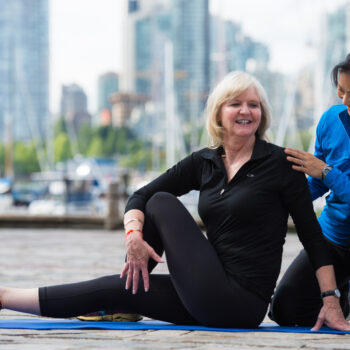“I was just in a car accident. NOW WHAT?” This is somewhat of a personal topic for me, as I’ve been rear ended on two separate occasions. I am a cyclist and I ride a motorcycle, these two populations are also close to my heart, and some of my friends have been seriously injured or died in motorcycle accidents. I have randomly witnessed 6 car accidents, seen two vehicles go up in flames and pulled kids from a smoking car…I have a soft spot in my heart for people needing help. It rains a heck of a lot in Vancouver, I’m not sure I can blame the weather for it, but in any case, car accidents are no fun. Maybe because I’m a kinesiologist, I see a lot of this.
When I hear that a friend has been injured, my heart goes out to them — while I know that I can be of service as a kinesiologst and rehabilitation professional, and even if it is NOT me — then as long as they go see someone (physio, chiro, another kin), then I will generally assume they are in good hands (I hope!!).
There is always one area that seems to have the ball dropped, and this is in the area of communication and understanding what happens after the accident, who to talk to and how you’re supposed to get help.
Depending on when you call ICBC, or the busy-ness of the adjustor you might be working with, sometimes information gets lost or missed along the way. I find that some people that end up in my care are confused, frustrated, not sure who they’re supposed to be talking to, what the next steps are and what their rights are.
(Side note: I’m NOT a lawyer, so I cannot give any advice as to what you should or should not say to ICBC, or whether or not you should get a lawyer, but I will get back to you on this topic very soon!)
 While some adjustors and lawyers are a real pleasure to work with and many are professional and courteous enough, sometimes you can get an adjustor on a bad day, and their systems might have you feeling deflated and frustrated. A personal friend told me that she felt interrogated, and they must have thought she was lying about her pain and discomfort.
While some adjustors and lawyers are a real pleasure to work with and many are professional and courteous enough, sometimes you can get an adjustor on a bad day, and their systems might have you feeling deflated and frustrated. A personal friend told me that she felt interrogated, and they must have thought she was lying about her pain and discomfort.
After hearing about her experience, I thought the only thing I can do is explain OUR PROCESS in how we work with someone recovering from a car accident and how we do our absolute best to make sure you feel heard, supported and like we’re on your side during your time with us.
The goal during your intake is for us to get a “big picture” understanding of your situation and be completely open and honest about our ability to work with you, and what kind of results you can expect. The healing process is completely dependent on the individual, the severity of their injury, the state they come to us in, the situation they are currently in and their desire/ability to control variables they can influence.
Here’s how it works at Le Physique. Give us a call and we’ll ask you a few questions about where you are in the process, things like:
* Do you have a doctor’s referral?
* Did your adjustor recommend that you work with a kinesiologist?
* Are you working with any other health care professional, such as your doctor, a physiotherapist, a chiropractor, massage therapist etc? What have they told you about your recovery? Have you been officially diagnosed with XYZ issue?
* How long ago was your car accident?
* What kind of general symptoms are you experiencing?
If it sounds like it is the right time to begin working with a kinesiologist, there are THREE MAIN OPTIONS available to you at this point.
Option 1) PRIVATE PAYMENT
Book an active rehabilitation (AR) intake session and begin a customized AR program with us, and pay for the program yourself. We’ll provide you with an official invoice that you can use for your records, for submission to your lawyer or health care plan etc.
Pros:
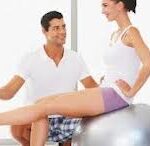 Getting started is fast. This option is really great for people that are interested in taking charge of their situation and not willing to wait for an adjustor to say “yes” or “no” to this type of treatment. If you have the ability to take this route, we find that the mindset of people who are paying out of their own pocket is usually “Come hell or high water I’m getting better because I’m in charge of my own health and *I’ve* paid for it.” Money can be a big motivator. These people typically have a take charge attitude across most areas of their life. For some of you, we will have to help you set realistic expectations of your progress, so we can’t say on our first meeting that we’ll have you back playing hockey completely pain-free in 3 weeks, or that you’ll be able to work 100 hours a week again without needing to stretch and up the self care levels!
Getting started is fast. This option is really great for people that are interested in taking charge of their situation and not willing to wait for an adjustor to say “yes” or “no” to this type of treatment. If you have the ability to take this route, we find that the mindset of people who are paying out of their own pocket is usually “Come hell or high water I’m getting better because I’m in charge of my own health and *I’ve* paid for it.” Money can be a big motivator. These people typically have a take charge attitude across most areas of their life. For some of you, we will have to help you set realistic expectations of your progress, so we can’t say on our first meeting that we’ll have you back playing hockey completely pain-free in 3 weeks, or that you’ll be able to work 100 hours a week again without needing to stretch and up the self care levels!
Cons:
This option doesn’t work so well if the funds aren’t there for private payment, or maybe you’ve already spent hundreds (or thousands) of dollars on modalities that you don’t feel forwarded you, and you’re at the end of your rope. If you’ve come to us at this phase, we appreciate your honesty and understand your frustration with the situation and as a result, we will be in full communication with you regarding our ability to treat you and what we can do differently, or build on the information you have already been provided by other health care practitioners.
Option 2) THIRD PARTY PAYMENT
 Provide us with your adjustor’s contact, your claim number and we’ll introduce ourselves to your adjustor, send them information about how we work, our qualifications and request their coverage of an initial assessment. What this means is we’ll ask ICBC to pay us to bring you in for an assessment of your current situation, including a range of motion, strength and capacity report, so no money comes out of your pocket. If they approve (there may be a few steps in between) of step one, then after your assessment we’ll provide ICBC with a report of the situation and ask them to fund an active rehabilitation program with us. We do much of the leg work in this situation.
Provide us with your adjustor’s contact, your claim number and we’ll introduce ourselves to your adjustor, send them information about how we work, our qualifications and request their coverage of an initial assessment. What this means is we’ll ask ICBC to pay us to bring you in for an assessment of your current situation, including a range of motion, strength and capacity report, so no money comes out of your pocket. If they approve (there may be a few steps in between) of step one, then after your assessment we’ll provide ICBC with a report of the situation and ask them to fund an active rehabilitation program with us. We do much of the leg work in this situation.
Pros:
All, or the majority of your active rehabilitation program is paid for. Depending on how much the adjustor will approve, you may be required to pay a “user fee” for the sessions, ranging from $5 to $35 per session. Unfortunately, I’m not able to predict what your adjustor will be able to approve, so this is information that we could provide to you, after the report is submitted. We will ask ICBC to pay for your program.
Cons:
Your adjustor could say “no,” or the approval process could take anywhere from one to three weeks to get the ball rolling. Depending on the case load of your adjustor, or if you require a doctor’s referral for a kinesiologist (and how long it takes for you to get an appointment with your physician), it could delay the time before we can begin your active rehab program. Also, if a third party (ICBC) is paying for your program, there are a few rules we have to play by. One of them is “compliance”. If a client routinely skips, or is late for their appointments without a logical reason or no communication, it is our responsibility to report this to ICBC and we may need to discharge you early from the program, meaning your training is stopped. This has never happened to any of our clients, but ICBC doesn’t look very kindly on people being injured and then suddenly leaving town on spontaneous vacations or staying home because they didn’t feel like coming in. Well, to be honest, neither do we.
Option 3) GET A LAWYER
 I can’t tell you why you should or should not get a lawyer, as most clients come to us already with one, or they have decided to not go that route. If you do have a lawyer, then that person becomes our “go to” contact and most communication occurs between us and your lawyer, versus us and your adjustor.
I can’t tell you why you should or should not get a lawyer, as most clients come to us already with one, or they have decided to not go that route. If you do have a lawyer, then that person becomes our “go to” contact and most communication occurs between us and your lawyer, versus us and your adjustor.
Pros:
You feel supported and protected by someone that can fight for you, and you may never need to talk to an adjustor again. Most often ICBC still covers the rehabilitation program and no money comes from you to us.
Cons:
I have no idea how much lawyers can cost in situations like this, so right now that would be the only con I can see. I typically see lawyers involved in sticky situations, so if anything I feel the biggest “con” would be the fact that this had to happen to you in the first place.
—
Hopefully that provides you some information on how we are a willing part of your health care team in the event that you need a kinesiologist for active rehabilitation. I cross my fingers that you’ll never need to see us for this reason, but in the event that you need a little direction, please give us a call and we’ll be happy to talk with you about your situation, where things are going for you and give you some support in choosing the next step that FEELS RIGHT FOR YOU. Thankfully, as passionate personal trainers, we love what we do and would love to work with you and promise to make sure we will do our best to take really great care of you. Now get out there, drive safe and be safe!


